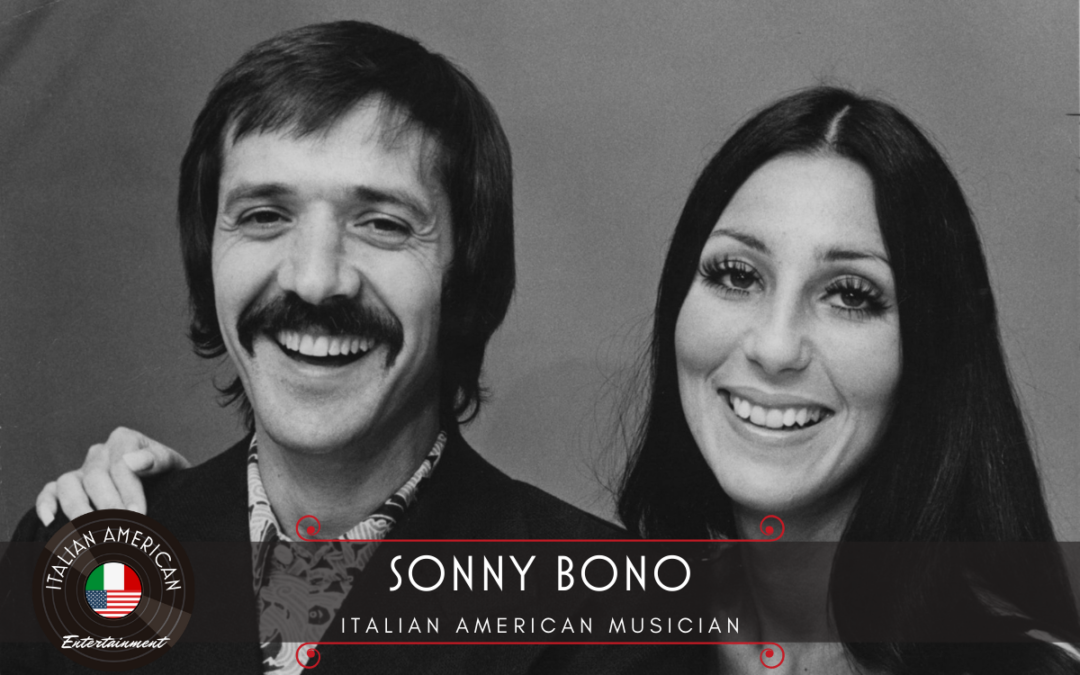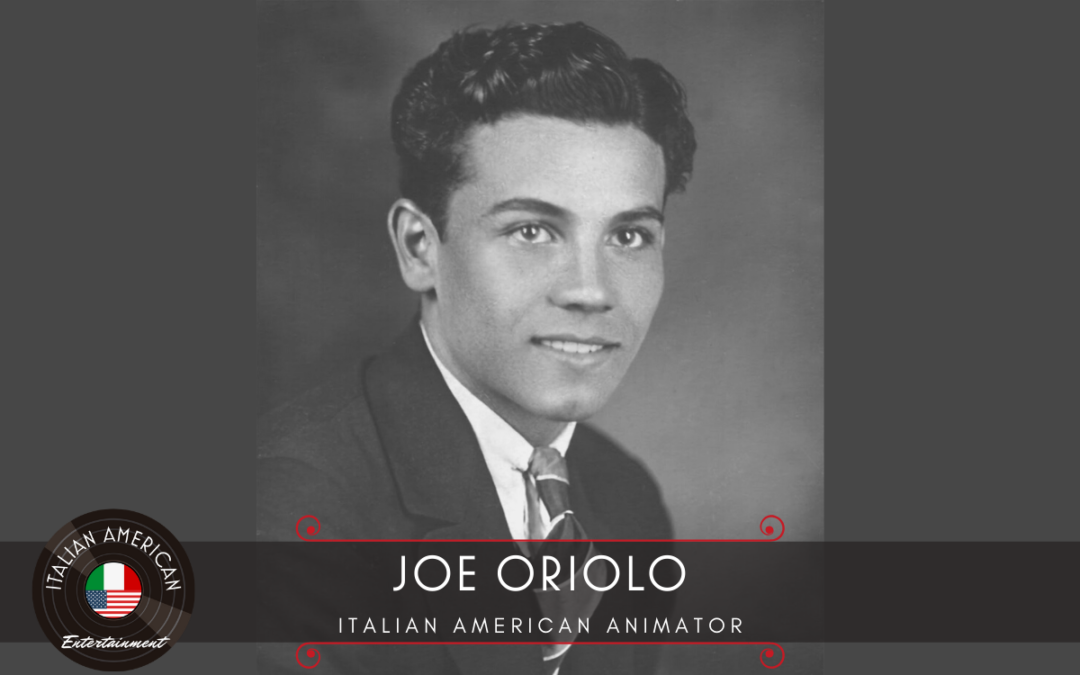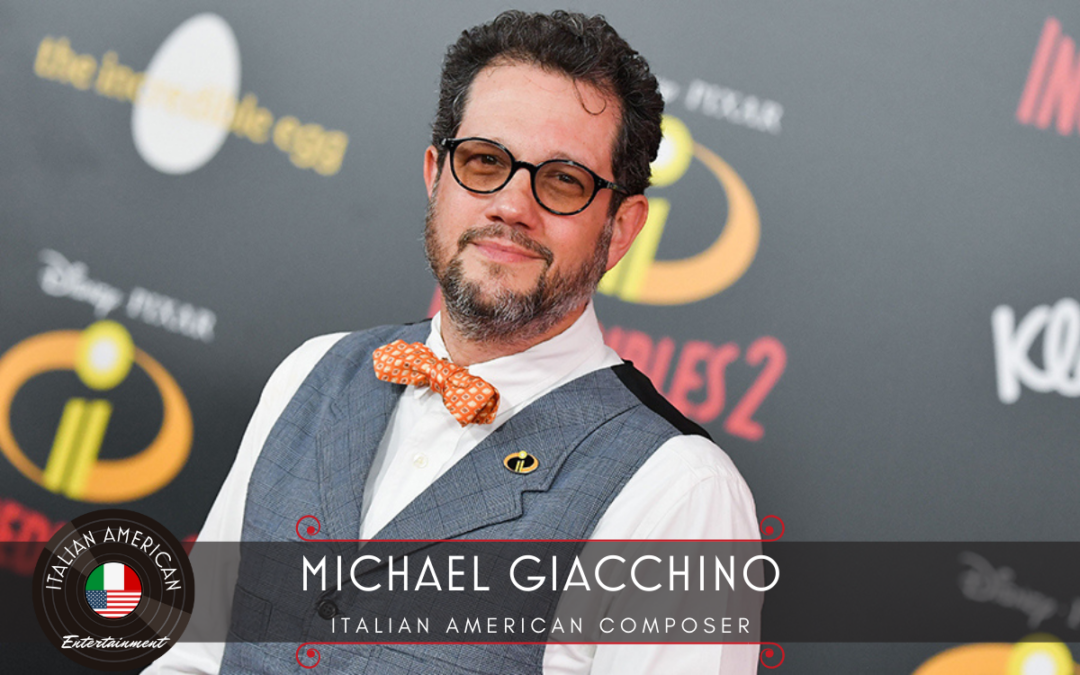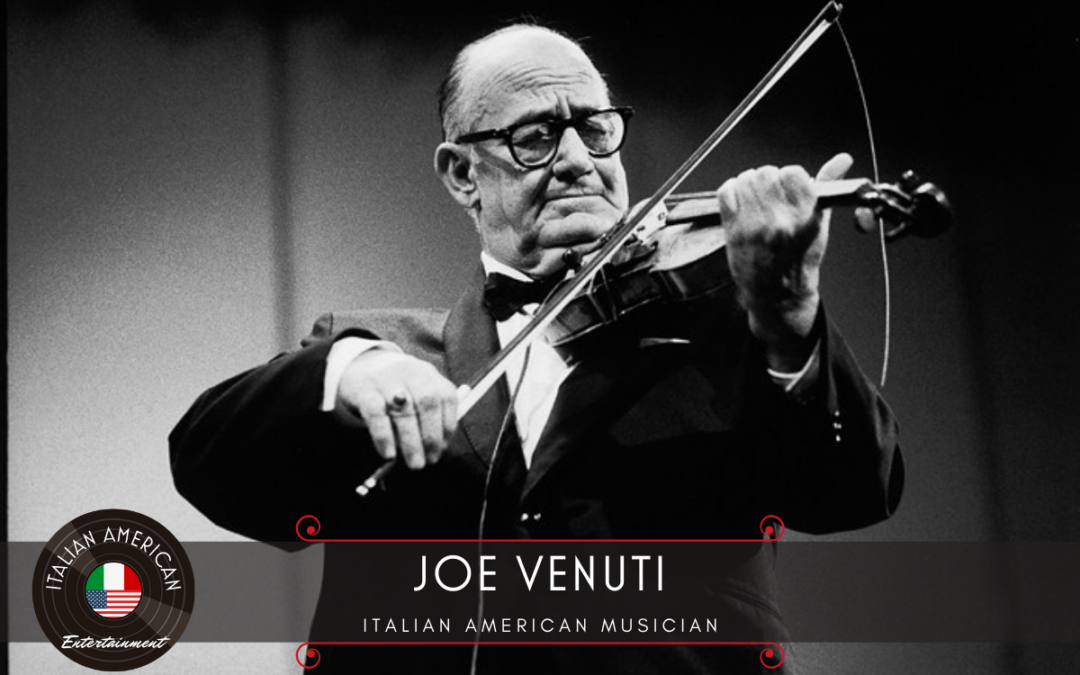
by Vince Chiarelli | Oct 14, 2020 | Blog, Film, Musicians, Television
Salvatore Phillip “Sonny” Bono was born in Detroit in 1935, to parents Santo Bono (born in Montelepre, Palermo, Italy) and Zena “Jean” DiMercurio. His mother called him “Sono” as a term of endearment, which evolved over time into “Sonny”. Bono decided early in life to become part of the music business, and began writing songs as a teenager. “Koko Joe”, a song he wrote at age 16, was recorded by Don and Dewey in 1958, and later covered by several other artists including The Righteous Brothers. Bono attended Inglewood High School in California, but did not graduate, opting to drop out so he could begin to pursue a career as a songwriter and performer. He worked at a variety of jobs while trying to break into the music business, including waiter, truck driver, construction laborer, and butcher’s helper.
Bono began his music career as a songwriter at Specialty Records, where his song “Things You Do to Me” was recorded by Sam Cooke, and went on to work for record producer Phil Spector in the early 1960s as a promotion man, percussionist and “gofer”. One of his earliest songwriting efforts, “Needles and Pins” was co-written with Jack Nitzsche, another member of Spector’s production team. Later in the same decade, he achieved commercial success with his wife Cher in the singing duo Sonny and Cher. Bono wrote, arranged and produced a number of hit records including the singles “I Got You Babe” and “The Beat Goes On”, although Cher received more attention as a performer. He played a major part in Cher’s solo recording career, writing and producing singles including “Bang Bang” and “You Better Sit Down Kids”.
Bono co-wrote “She Said Yeah”, covered by The Rolling Stones on their 1965 LP December’s Children. His lone hit single as a solo artist, “Laugh at Me”, was released in 1965 and peaked at No. 10 on the Billboard Hot 100. His solo album, Inner Views, was released in 1967.
Sonny continued to work with Cher through the early and mid-1970s, starring in a popular television variety show, The Sonny and Cher Comedy Hour, which ran on CBS from 1971 to 1974. From 1976 to 1977, the duo, since divorced, returned to perform together on The Sonny and Cher Show. Their last appearance together was on Late Night with David Letterman on November 13, 1987, on which they sang “I Got You Babe”.
Bono was elected to the United States House of Representatives in 1994 to represent California’s 44th congressional district. He was one of twelve co-sponsors of a House bill extending copyright. Although that bill was never voted on in the Senate, a similar Senate bill was passed after his death and named the Sonny Bono Copyright Term Extension Act in his memory. Bono remains the only member of Congress to have scored a number-one pop single on the US Billboard Hot 100 chart.
Bono died on January 5, 1998, of injuries incurred when he hit a tree while skiing at Heavenly Mountain Resort in South Lake Tahoe, California.

by Vince Chiarelli | Oct 12, 2020 | Podcasts
On this episode of The Italian American Entertainment Podcast, Vince Chiarelli, of the Vince Chiarelli Band, interviews the great singer and entertainer Anthony “Nino” Lane. Nino performs with his band at many Italian Festivals and venues, in addition to owning the Fox Theater in Salinas, CA.
Find out more about Nino at these links
Website
Fox Theater
Facebook

by Vince Chiarelli | Oct 11, 2020 | Blog, Film, Television
Joseph “Joe” Oriolo was born in Union City, NJ in 1913, the son of Italian immigrants. As a child, he drew constantly and dreamed of becoming a cartoon animator. In 1933, at age 20, he went to work for Fleischer Studios as an errand boy, where his talent as a draftsman and his ambitions advanced him to the position of an animator within one year. During the late ’30s, he worked on a number of studio shorts, and when the studio moved to Miami in ’38 he went with it. There, in addition to the shorts, he worked on both of the studio’s feature-length films, Gulliver’s Travels and Mr. Bug Goes to Town, as well as the two-reel Raggedy Ann & Raggedy Andy. Paramount took over the Fleischer studio in 1942 and re-established it in New York as Famous Studios. Joe Oriolo met Otto Messmer (who was employed with the studio as a storyboard artist from 1944–46) before leaving in 1944.
In 1939, he and author Seymour Reit created the character of Casper the Friendly Ghost for a children’s book. Two subsequent books, There’s Good Boos To-Night and A Haunting We Will Go followed, before Oriolo sold the rights to Famous Studios. Casper went on to become one of the studios’ most popular animated series before being sold to Alfred Harvey (whose Harvey Comics began producing Casper comic books in 1952) on July 27, 1958.
After leaving Famous Studios, Oriolo began working as a freelance animator on films for the armed forces and industrial films, as well as some of the earliest TV commercials. He began drawing comic books (including Fawcett’s George Pal Puppetoons), and began working with Otto Messmer on the Felix the Cat comic books until they ceased publication. In 1954, Oriolo assumed authorship of the separate Felix daily comic strips at the request of King Features Syndicate, which he continued to produce until 1969.
In 1958, Joe became a business partner with William O. Sullivan, brother of Pat Sullivan, the original copyright owner of Felix the Cat. Together, they formed Felix the Cat Productions, Inc. and created the pilot show for the award-winning Felix the Cat television series. Making use of many former Fleischer/Famous directors, 260 Felix shorts were made for television syndication in 1960. Oriolo built on this success in 1963 with both The Mighty Hercules and Beetle Bailey. In 1967, Oriolo Studios created Johnny Cypher in Dimension Zero. In 1969, Ribbon no Kishi was brought to the U.S. by Joe Oriolo and Burt Hecht. It was retitled Princess Knight and purchased from Mushi Productions; English dialogue scripts were written and voices dubbed. Later, the business arrangement between Oriolo and Hecht fell apart; and as part of the settlement, Hecht departed with the Princess Knight masters in 1970. As a result, the company ultimately scrapped the show before it could be broadcast. For a number of years it was thought that all of the English-language dubs of the series had been either lost or destroyed. However, the English-language masters of the series were found in the Netherlands in 1996.
By 1971, Oriolo had taken complete control of Felix the Cat, and continued to market the character right up until his death.
A resident of Woodcliff Lake, New Jersey, Oriolo died at the age of 72.

by Vince Chiarelli | Oct 10, 2020 | Blog, Musicians
Michael Giacchino was born in Riverside Township, New Jersey in 1967. His father’s ancestors were Italian immigrants from Sicily and his mother’s ancestors emigrated from Abruzzo; he holds dual American and Italian citizenship.
Giacchino began combining images and music at age 10, when he began creating stop-motion animation with homemade soundtracks in his basement. While in high school, an art teacher who mentored Giacchino recommended to his parents that he attend the School of Visual Arts in New York City. Giacchino enrolled at SVA, majoring in film production and minoring in history. During his final year at SVA, his instructor in film publicity announced an unpaid internship was available at Universal Pictures. Giacchino, who was the only one interested, obtained the six-month position, which he filled at night while attending school during the day and working at Macy’s to pay his rent. He graduated from SVA in 1990 with a Bachelor of Fine Arts, after which he took music classes at the Juilliard School.
When Giacchino’s internship ended, Universal hired him, giving him a job upon graduation from college. He later moved to Disney, and when Disney relocated to Los Angeles, Giacchino moved with them, working in publicity, while taking night classes in instrumentation and orchestration at UCLA. His work for Disney had him interacting with the various personnel who worked in films, such as the producers who hired composers, so when a job at Disney Interactive opened for a producer, Giacchino obtained the job, thinking he could hire himself to write music for the games he produced.
Giacchino’s composition work for Disney Interactive during the 16-bit era included the Sega Genesis game Gargoyles, the SNES game Maui Mallard in Cold Shadow and the various console versions of The Lion King. However his first major composition was for the DreamWorks video game adaptation of the 1997 movie, The Lost World: Jurassic Park. The video game was one of the first PlayStation- (also on Sega Saturn) console titles to be recorded with an original live orchestral score. Giacchino has since continued his relationship with DreamWorks which also included composing the score for the Small Soldiers video game in 1998, providing full orchestral scores for many of their popular video games. Giacchino’s award-winning compositions covers the first four installments of the Medal of Honor series, (Medal of Honor, Underground, Allied Assault and Frontline), Heroes: 2, and Medal of Honor: Airborne and also the scores for several other World War II-related video games like Secret Weapons Over Normandy, Call of Duty and Call of Duty: Finest Hour.
Giacchino’s work on various video games led to his entrance into television. In 2001, J. J. Abrams, producer of the television series Alias, discovered Giacchino through his video game work and asked him to provide the new show’s soundtrack. The soundtrack featured a mix of full orchestral pieces frequently intermingled with upbeat electronic music, a departure from much of his previous work. Giacchino would go on to provide the score for J. J. Abrams’s 2004 television series Lost,] creating an acclaimed score which employed a unique process of using spare pieces of a plane fuselage for percussion parts. The score for Lost is also notable for a signature thematic motif: a brass fall-off at the end of certain themes.
In 2004, Giacchino received his first big feature film commission. Brad Bird, director of Pixar’s The Incredibles, asked Giacchino to provide the soundtrack for the film after having heard his work on Alias. The upbeat jazz orchestral sound was a departure in style not only for Giacchino but for Pixar, which had previously relied on Randy and Thomas Newman for all of its films. Giacchino was nominated for two Grammy Awards in 2005 for The Incredibles: Best Score Soundtrack Album for Motion Picture, Television or Other Visual Media and Best Instrumental Composition.
Giacchino’s next musical achievement was his Paris-inspired score for the Disney-Pixar film Ratatouille, which includes the theme song “Le Festin”, performed by French artist Camille. He received his first Academy Award nomination for this score. He also created the score for Abrams’ 2009 Star Trek film. Giacchino scored the Pixar film Up, for which he collaborated with director Pete Docter. This marked the first time Giacchino worked with a Pixar director other than Brad Bird. This work gained Giacchino his first Academy Award for Best Original Score: the first-ever win for Pixar in that category.
In 2016, Giacchino composed the score for the Marvel film Doctor Strange, as well as the score for the Disney film Zootopia. In September 2016, it was announced that Giacchino had been chosen to replace composer Alexandre Desplat as the composer for the Star Wars anthology film Rogue One after Desplat was unavailable following reshoots. Giacchino then scored two more Marvel films, 2017’s Spider-Man: Homecoming and its sequel, 2019’s Spider-Man: Far From Home.
Giacchino returned to Pixar to score Coco (2017) and Incredibles 2 (2018). He also composed the score for Taika Waititi’s Jojo Rabbit. In 2021, Giacchino will re-team with Matt Reeves to score The Batman.
Source: Wiki

by Vince Chiarelli | Oct 9, 2020 | Blog, Musicians
Giuseppe “Joe” Venuti was an Italian-American jazz musician and pioneer jazz violinist. He was born in Philadelphia in 1903.
Considered the father of jazz violin, he pioneered the use of string instruments in jazz along with the guitarist Eddie Lang, a friend since childhood. Through the 1920s and early 1930s, Venuti and Lang made many recordings, as leader and as featured soloists. He and Lang became so well known for their ‘hot’ violin and guitar solos that on many commercial dance recordings they were hired to do 12- or 24-bar duos towards the end of otherwise stock dance arrangements. In 1926, Venuti and Lang started recording for the OKeh label as a duet (after a solitary duet issued on Columbia), followed by “Blue Four” combinations, which are considered milestone jazz recordings. Venuti also recorded commercial dance records for OKeh under the name “New Yorkers”.
He worked with Benny Goodman, Adrian Rollini, the Dorsey Brothers, Bing Crosby, Bix Beiderbecke, Jack Teagarden, Frank Signorelli, the Boswell Sisters, and most of the other important white jazz and semi-jazz figures of the late 1920s and early 1930s. However, following Lang’s death in 1933, Venuti’s career began to wane, though he continued performing through the 1930s, recording a series of commercial dance records (usually containing a Venuti violin solo) for the dime store labels, OKeh and Columbia, as well as the occasional jazz small group sessions. He was also a strong early influence on western swing players like Cecil Brower. Many of the 1920s OKeh sides continued to sell and remained in print through 1935 when ARC discontinued the OKeh label and reissued selected sides on the 35-cent Vocalion label (the OKeh label was revived by CBS in 1940).
After a period of relative obscurity in the 1940s and 1950s, Venuti played violin and other instruments with Jack Statham at the Desert Inn Hotel in Las Vegas. Statham headed several musical groups that played at the Desert Inn from late 1961 until 1965, including a Dixieland combo. Venuti was with him during that time, and was active with the Las Vegas Symphony Orchestra during the 1960s. He was ‘rediscovered’ in the late 1960s. In the 1970s, he established a musical relationship with tenor saxophonist Zoot Sims that resulted in three recordings. In 1976, he recorded an album of duets with pianist Earl Hines entitled Hot Sonatas. He also recorded an entire album with country-jazz musicians including mandolinist Jethro Burns (of Homer & Jethro), pedal steel guitarist Curly Chalker and former Bob Wills sideman and guitarist Eldon Shamblin.
In 1970 Venuti was diagnosed with cancer. He died on August 14, 1978 in Seattle, Washington.
Source: Wiki





